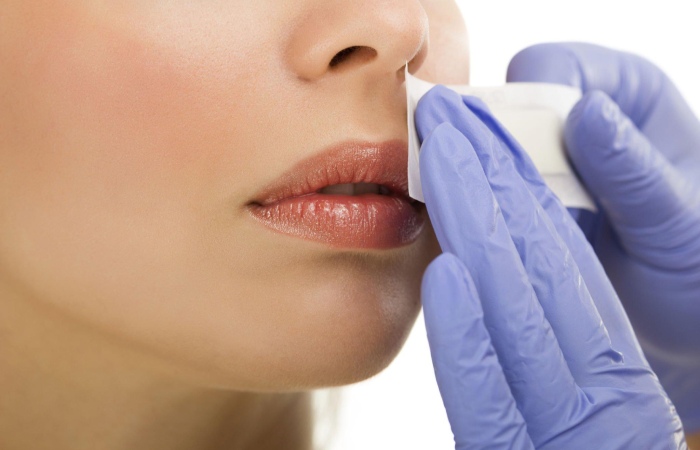
Hair Removal Wax – Can You Use A Base Coat As A Top Coat – Waxing may be a cost effective hair removal technique, but safety measures must be taken. Never wax highly sensitive or burnt skin; avoid waxing if you have taken isotretinoin. Brazilian waxing may also be best left to specialists due to the sensitive nature of the skin in that area.
Waxing For Hair Removal

Achieve the ideal hair length. Ensure your hair is between one-fourth and three-fourths of an inch long before waxing. Clip long hair to a shorter length using safety scissors to make waxing less messy and uncomfortable.
Before waxing, stay away from retinoid creams. Two to five days before waxing your face, refrain from using retinol-containing over-the-counter skin care products and prescription retinoids to prevent removing skin and hair.
Make sure you Follow These Steps
Ensure comfort. Waxing can be uncomfortable for some individuals, so consider methods to make it less unpleasant. Ibuprofen and other over-the-counter pain relievers, as well as applying cold packs to the skin about 30 minutes before waxing, may be helpful.
Rinse and pat the area dry. Remove debris, dead skin cells, and skin care products from the area you plan to wax before waxing. After that, completely dry your skin. The wax adheres effectively to dry, clean skin.
Heat the wax. Always test the wax’s temperature by applying a tiny quantity to the inside of your wrist before using it, and follow the instructions on the packaging. Although heated, it shouldn’t sting or burn.
Put the wax on. Apply the wax on a tiny area of your skin with undesired hair. Always apply wax in the direction of hair growth for the greatest results.
Put the fabric strip in place. Place the cloth strip over the wax once it has been applied, then firmly push down. Wait two to three seconds before removing the towel.
Take the cloth strip off. Holding your skin taut with one hand, swiftly yank the material off in the opposite way with the other.
Holding your skin taut with one hand, swiftly peel the cloth off in the opposite direction of hair development with the other hand. Consider getting a friend or family member to assist you if you’re waxing in a difficult-to-reach area, such as the underarms.
Calm your skin. Apply cold packs to your skin if you are in discomfort after waxing. Avoid hot baths and showers. Wear loose clothing. Use a moisturizer that won’t clog your pores. Find moisturizers with the designations “oil-free” or “non-comedogenic.”
The Various Kinds of Wax Available for Hair Removal:
-
Gentle wax
When using soft wax, sometimes called strip waxing, the skin is covered with a thin coating of heated body wax. Larger body parts, such as your arms and legs, are often the places where this is applied. It is directly administered to the skin using a roller or a wooden stick. The hair is then removed by covering it with a strip of fabric and pulling it off. You can have smooth skin since soft varieties of wax can reach fine, invisible hair strands. However, this body wax should never be applied to the same region more than once during a single session because it
-
Hard wax
Hard body wax is often utilized for smaller, more delicate regions like the upper lip, underarms, and bikini lines. Warm application of this kind of body wax is made straight to the skin. It is allowed to cool and solidify before being peeled off against the direction of hair growth. Hard wax can only adhere to the hair and never to the skin. The procedure is often less painful than soft body wax and may be repeated several times without causing skin damage.
3. Fruit wax
Fruit body wax is suggested for delicate skin since it functions similarly to hard body wax. It contains a tonne of fruit extracts, including berries and plums. It implies these wax varieties are loaded with vitamins that feed the skin and antioxidants. Additionally, they can be more expensive because they are much kinder to the skin than regular soft body wax. But utilizing this won’t leave any traces, and they also function as skincare, which is a benefit.
-
Cocoa butter
Another popular option that is offered at most salons is chocolate wax. It uses chocolate’s skin advantages as a component, which is antioxidant-rich and less uncomfortable to apply than other body wax varieties. Chocolate body wax is an excellent option for skin prone to redness since it is anti-inflammatory, includes glycerine, and contains oils like soybean and almond. Again, this wax often costs more than other forms of wax, but it also offers skincare advantages.
About Sweet wax
Since ancient times, sugar wax has been produced by mixing sugar, lemon, and hot water. Like soft and hard body wax, sugar draws hair roots from the skin. It is similar to soft and hard body wax but manufactured with natural components, making it the best choice for sensitive skin. Sugar wax may be applied and removed several times without harming the skin since, like hard body wax, it just adheres to the hair.
- When waxing, either hot or cold wax is applied to the skin in the direction of hair growth. As soon as it hardens and becomes solid, fabric strips that have been put on top are torn off, ripping the hair out in the opposite direction from how it develops. Another option is to use wax strips that have already been created.
- Best for: Upper lip, legs, bikini area, eyebrows, and underarms.
- Benefits: Wax can prevent skin hair for weeks, allowing you to put hair removal on hold for a while.
- Drawbacks: It may cause soreness. Additionally, if you want to show off your legs or detest the feeling of hairs coming back, you have to wait till they are long enough to be waxed. Doing it yourself can save money. If you visit a salon, it could be pricey and dirty. Finally, extremely short hairs may be missed by wax.
- Beauty rating: Excellent if you find regular hair removal a “hassle” and are willing to pay for a professional procedure.
- Dermatologist’s note: After waxing, the skin may become dry. Apply a soothing lotion next, particularly one with aloe vera.
Professionals At Waxing

- With regular waxing, the skin may feel smoother, and hair may eventually grow thinner.
- Exfoliation can be accomplished by waxing.
- Waxing results persist for three to four weeks.
Waxing Fraud
- Depending on the person and their pain threshold, waxing might be uncomfortable. Some claim waxing hurts more than shaving since the hair is removed from the root. If you are careless, the hot wax can potentially burn your skin.
- Waxing can result from ingrown hairs, discomfort, redness, irritated hair follicles, and skin irritability.
- Do your research before attempting a wax since removing female facial hair while taking retinoid anti-aging or acne medications can result in abrasions, infection, and even scars.
- Your hair needs to be ¼” to ½” to be waxed.
Advice for Waxing
Waxing requires talent, so start at a salon or get a more qualified instructor to show you the ropes. Watch the temperature when warming the wax to prevent skin burns. Spend money on a trip to the salon with a professional for the finest results.
How Should I Apply Hair Wax To My Hair?
Step 1: Use a wide-toothed comb or paddle brush to detangle your hair so it is free of knots (making the application procedure simpler).
Step 2: Next, use the tip of your finger to apply a pea-sized amount of hair wax to the center of your hand. Then, press it between your fingers to warm and melt the hair wax, making it simpler to apply to the hair.
Step 3: You may put the wax in your hair afterward. While applying the wax, your hair can be either entirely dry or moist.
Easy DIY Hair Removal With The Best Wax For Sensitive Skin

Nothing is more useful when preparing for a DIY waxing session at home than your respectable classic waxing kit. You might visit your neighborhood salon every other weekend for hair removal that seems like it was done by a professional, but most of us rely on the finest wax for sensitive skin when we need to depilate on a budget. They don’t simply save you money; they also provide results that last and work.
Compared to shaving, waxing provides a longer break between routine hair removal appointments since it removes those annoying hairs from the roots. Dermatologist Dr. Blair Murphy Rose states that “the hair growth cycle varies across people and various body areas. However, downtime is typically at least 2 to 4 weeks long and occasionally up to 6 to 8 weeks.
While waxing on delicate skin might be useful, you must be careful to prevent rashes or discomfort. Following extensive testing, we have developed the finest waxing kit for delicate skin that won’t make you resemble Alan Parrish from Jumanji.






